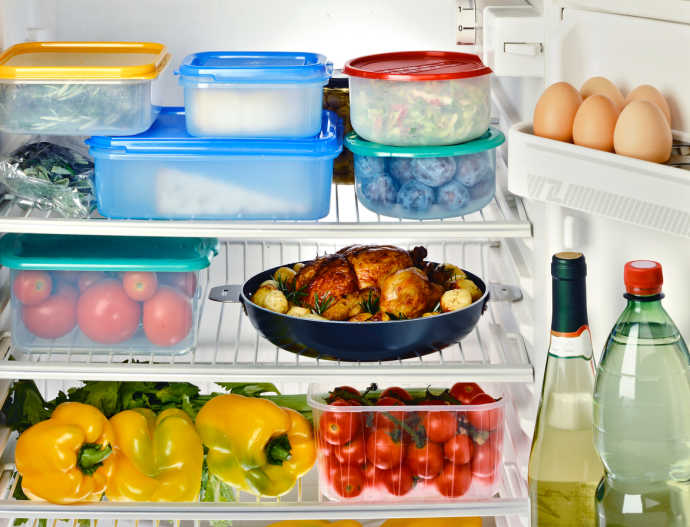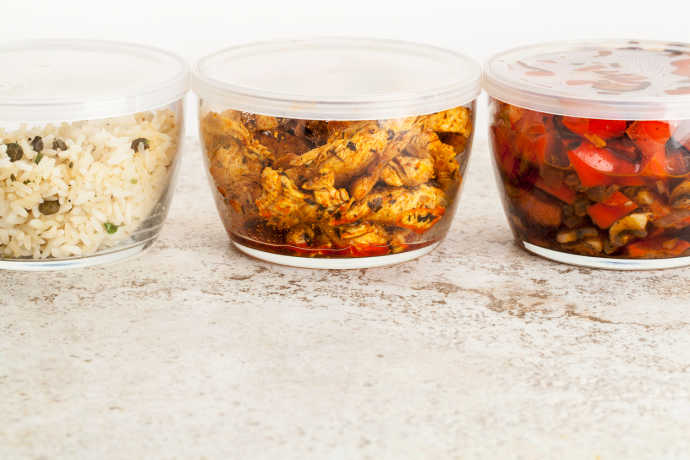7 Smart Ways to Reduce Food Waste
Posted by Julie on Apr 12th 2023
In honor of Earth Day this year, we’re covering ways to reduce food waste. Wasted food creates a significant environmental impact. Not only is food itself wasted, but so are the efforts to grow and process that food. The uneaten food that goes into landfills creates methane gas, and food production and transportation generates carbon dioxide emissions. Wasting food also wastes money.
What can we do about food waste? In this post, we’ll discuss seven ways you can greatly reduce food waste and help the environment. Better yet, these strategies save you money too.
1. Take Stock
Check the contents of your refrigerator, freezer, pantry, and kitchen cupboards before you buy food. This step is especially important where it comes to perishable foods. If you already have a full loaf of bread and a dozen eggs, you probably don’t need more. (Unless you need to make French toast for a dozen people.)
Fresh fruits and vegetables are another food waste culprit. Most varieties need to be eaten within a few days of purchase. If you buy another pint of strawberries when you already have one in the fridge, they both might go bad if you don’t consume them quickly.

Meat can be frozen, so it’s not essential that you use it immediately. However, beef and pork and chicken need to be cooked soon after it’s been thawed. Have a plan for it, especially more expensive cuts of beef. Fish should be purchased the day you plan to prepare it.
Although shelf-stable items like dried pasta, canned foods, and spices aren’t in danger of expiring for over a year or more, it’s worth checking your cupboards before you come home with duplicates. Spices in particular can be pricey, and most of us don’t use more than a teaspoon or two at a time, which means it can take a while to finish a jar.
In short, you can save both food and money if you take inventory before you shop.
2. Plan Ahead
Now you know what you have in your kitchen, but do you know what you want to buy at the store? Meal planning will help you shop more efficiently and more economically. Plus, planning ahead means you’ll always have an answer to that age-old question: “What’s for dinner?” Our post on meal planning explains all the nuances of thinking through what you’re going to cook, and when, and how much of each dish.
Planning ahead helps reduce food waste in a few ways. First, you’ll only buy what you need in order to make the meals you have planned. Second, because you’ve mapped out your meals for the week, you’re more likely to use the food you’ve bought in a timely manner so it doesn’t go bad. Finally, you’ll know in advance how you plan to handle leftovers, so they’re eaten for lunch or dinner (instead of languishing at the back of the fridge).
3. Make a List
Now that you know what’s in your kitchen and what you want to cook, you can make a grocery list that includes only what you need. Shopping from a list is far more economical than strolling into the supermarket and winging it.

No doubt you’ve been cautioned not to shop while hungry, which often leads to impulse purchases. Shopping without a list leads to similar mistakes. The good news is that if you’ve taken inventory and you have a meal plan for the week, you’re better equipped to make judicious spur-of-the-moment decisions. Blueberries on sale? You can scrap your plans for apple pie and opt for blueberry instead, without risking a pint of blueberries going bad in your fridge.
4. Still Good? Probably!
If your packaged foods have Sell By or Best By or Best Before dates printed on them, those are guides, not hard and fast rules. Your food is not a ticking time bomb that will go bad on a particular day or time. That said, use your judgment (and a quick sniff or taste) to discern whether food is still edible before throwing it out.
Perishables like meat, fruits, vegetables, and dairy are most likely to spoil. But canned, boxed, and frozen foods will keep much longer. They are unlikely to be dangerous to eat past their Best By or Best Before date. However, their taste may change or degrade over time. That’s another reason to take inventory before you shop: a lone can of kidney beans may be lurking in the back of the pantry, ready to be added to tonight’s pot of chili.
5. Eat or Freeze Leftovers
Leftovers may not sound appetizing, but you can reduce food waste by having a plan for your leftovers. If you put them in the refrigerator, be sure to eat them within a few days. Otherwise, put them in a freezer-safe container and save them for next week.

If you make a pot of chili or a batch of soup, you may want to divide up the leftovers that night when cleaning up the kitchen. Set aside a serving or two for tomorrow’s lunch or dinner, and then freeze the rest for another night. This approach will help you avoid leftovers fatigue, and you’ll be more likely to actually eat what you cooked rather than throwing it away.
Be sure to label your freezer-safe containers so you don’t have to guess at what’s inside. Even better, write the date on them too. While food is far less likely to go bad in the freezer, it will taste better if you eat it within weeks or months rather than years.
6. Compost Your Scraps
Another helpful way to reduce food waste doesn’t involve eating. Fruits and vegetables create a lot of waste simply because parts of them are inedible (or we often choose not to eat them, like carrot greens or orange peels or potato skins). Instead of throwing these scraps in the garbage, compost them.
Composting has become much easier, with deodorized bins and bags that can be used on the countertop, even in the smallest kitchens. We’re also big fans of the Vitamix FoodCycler which speeds up the composting process.
7. Share Plates
Our final tip for reducing food waste doesn’t involve cooking. When you go out to eat, consider the portion size of your order. Many restaurants serve gigantic portions that can be shared between two people. Sure, there may be a charge for sharing an entree, but it’s still less expensive than ordering two separate meals. You’re also more likely to finish your meal instead of sending a half-eaten plate back to the kitchen (and eventually into the dumpster).

